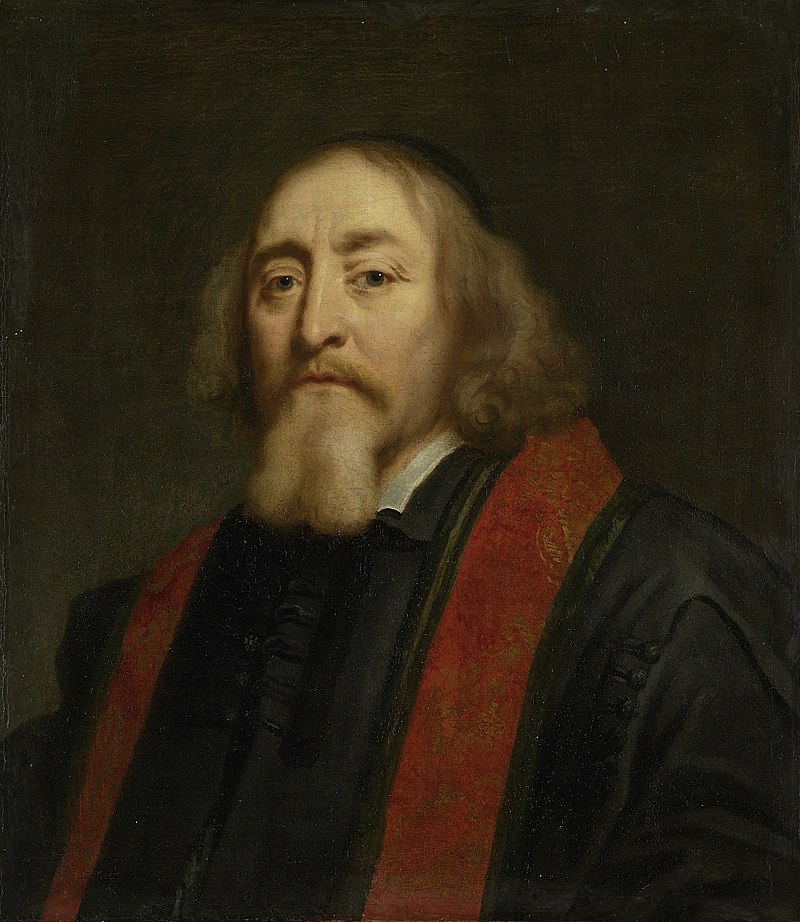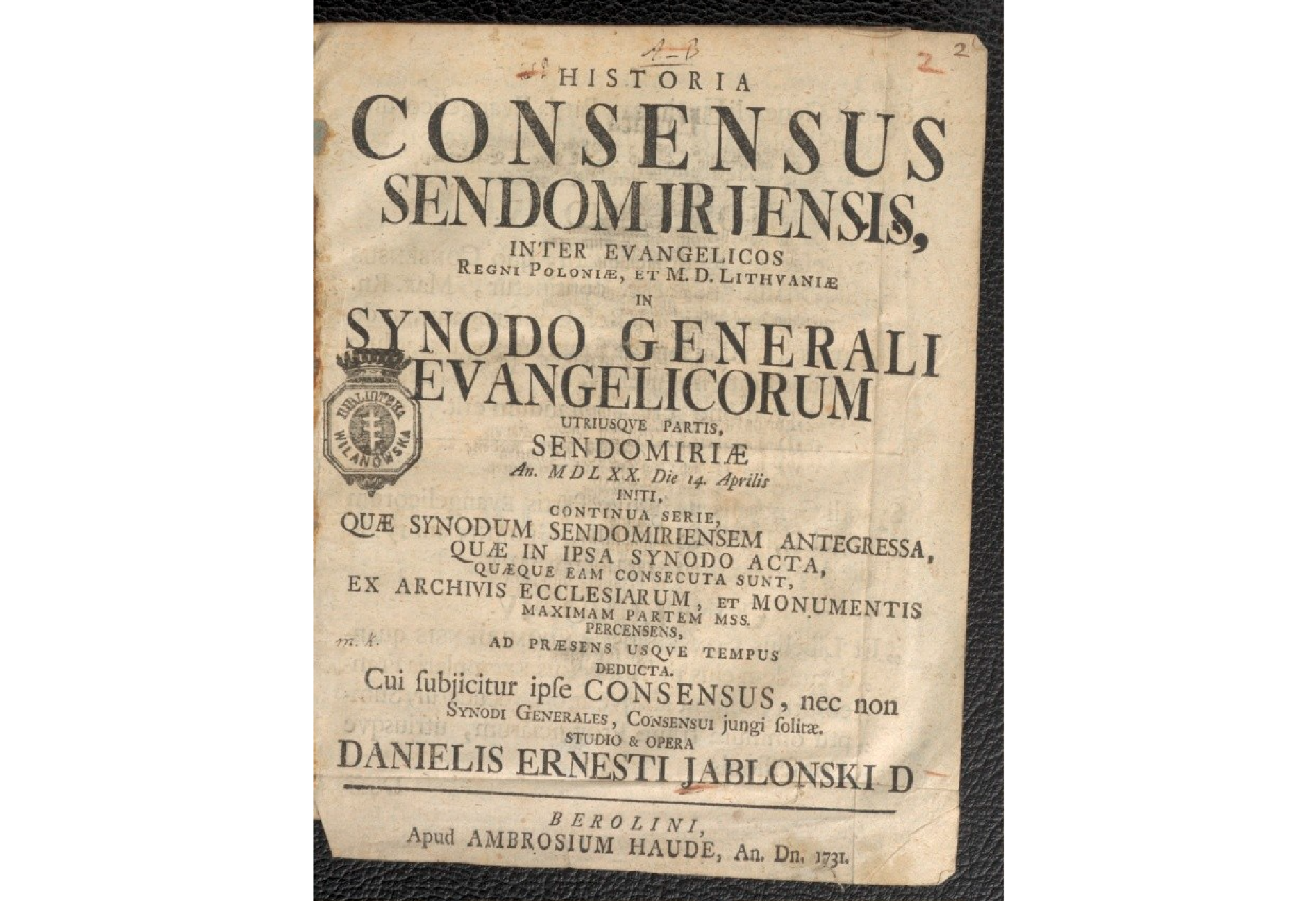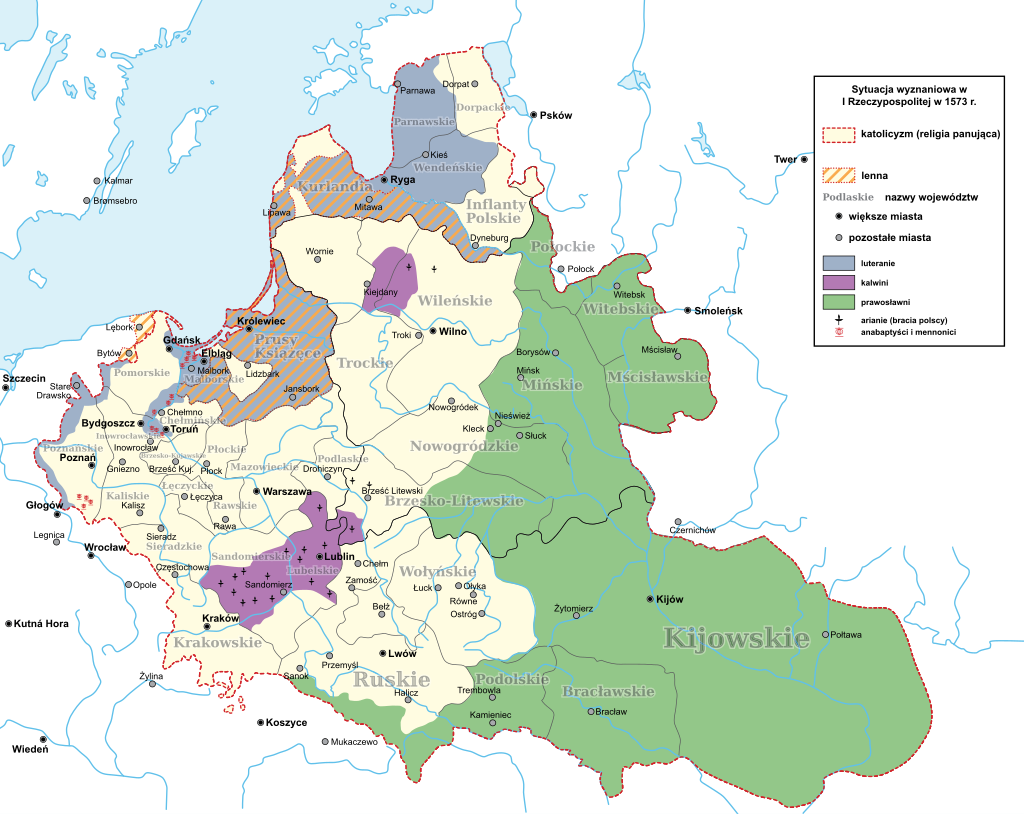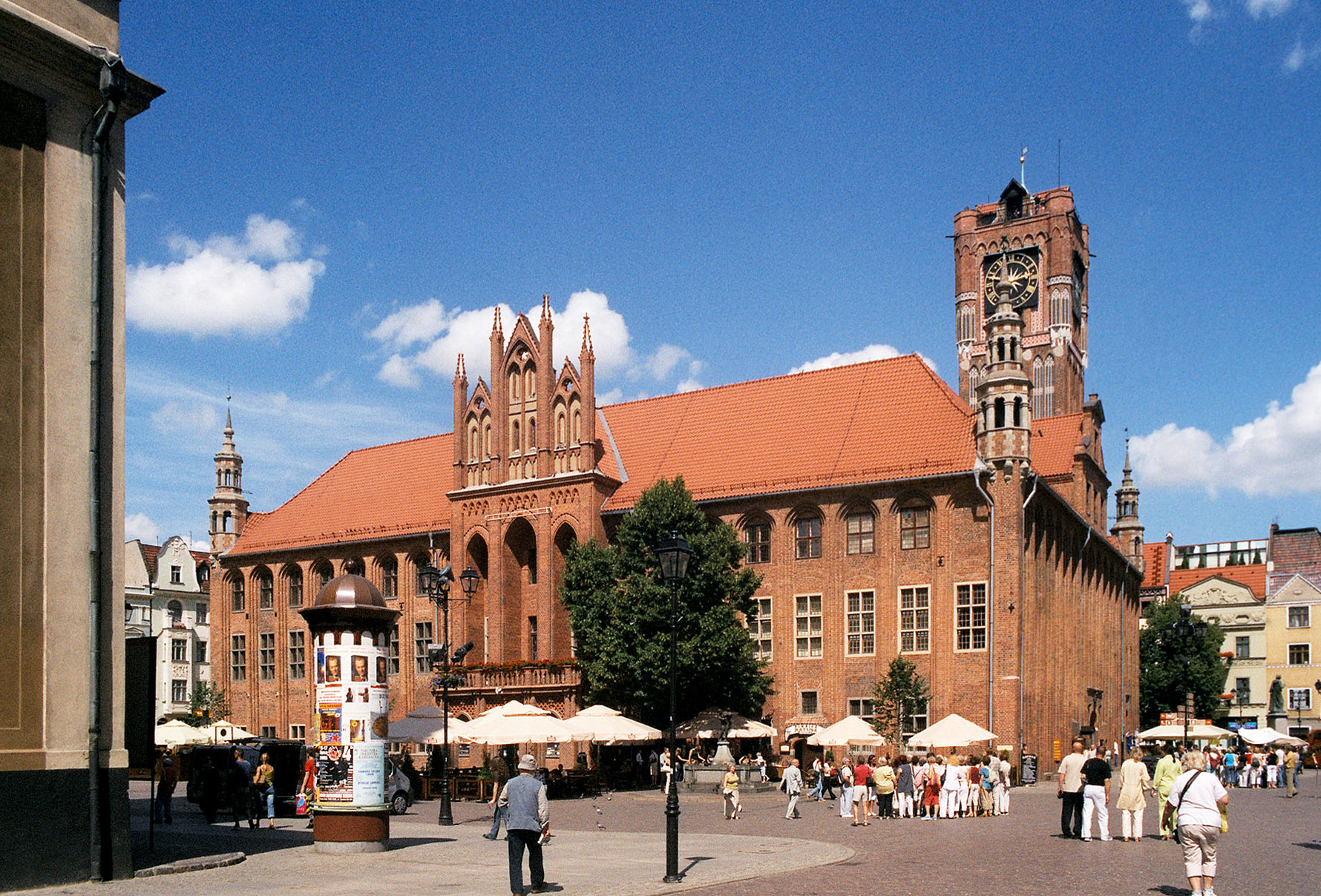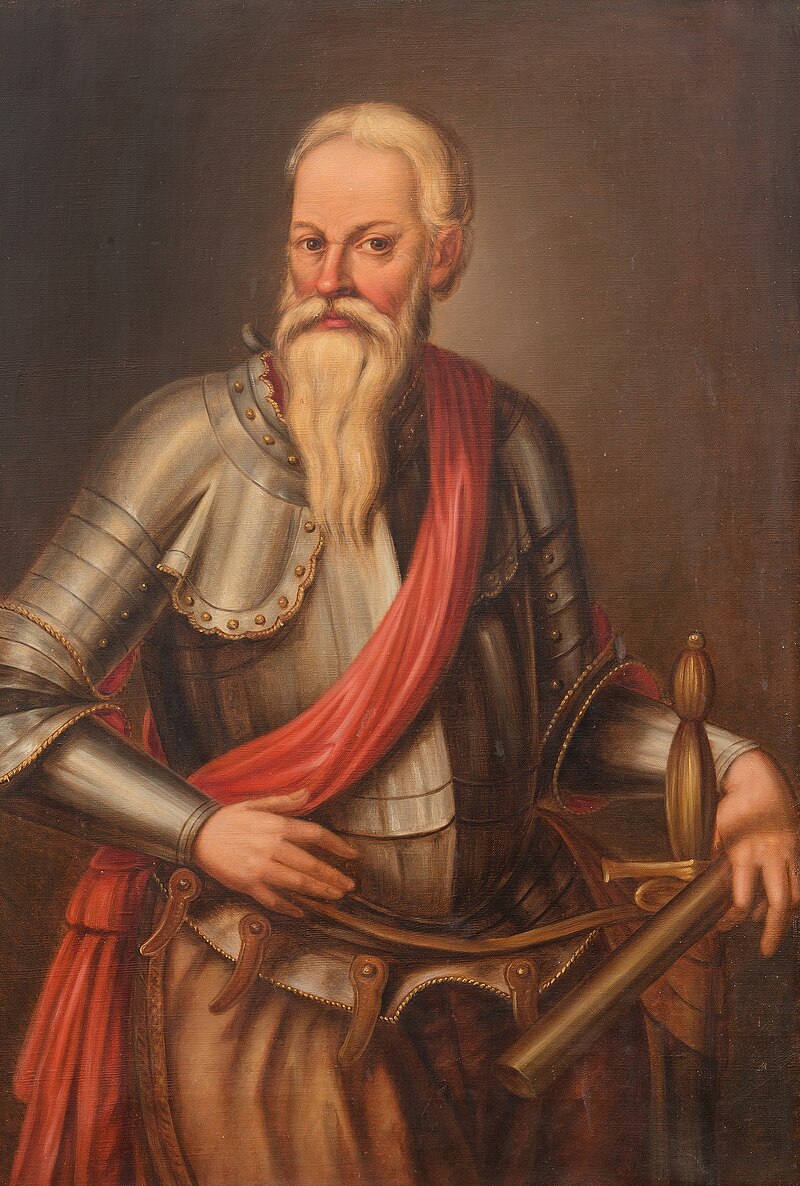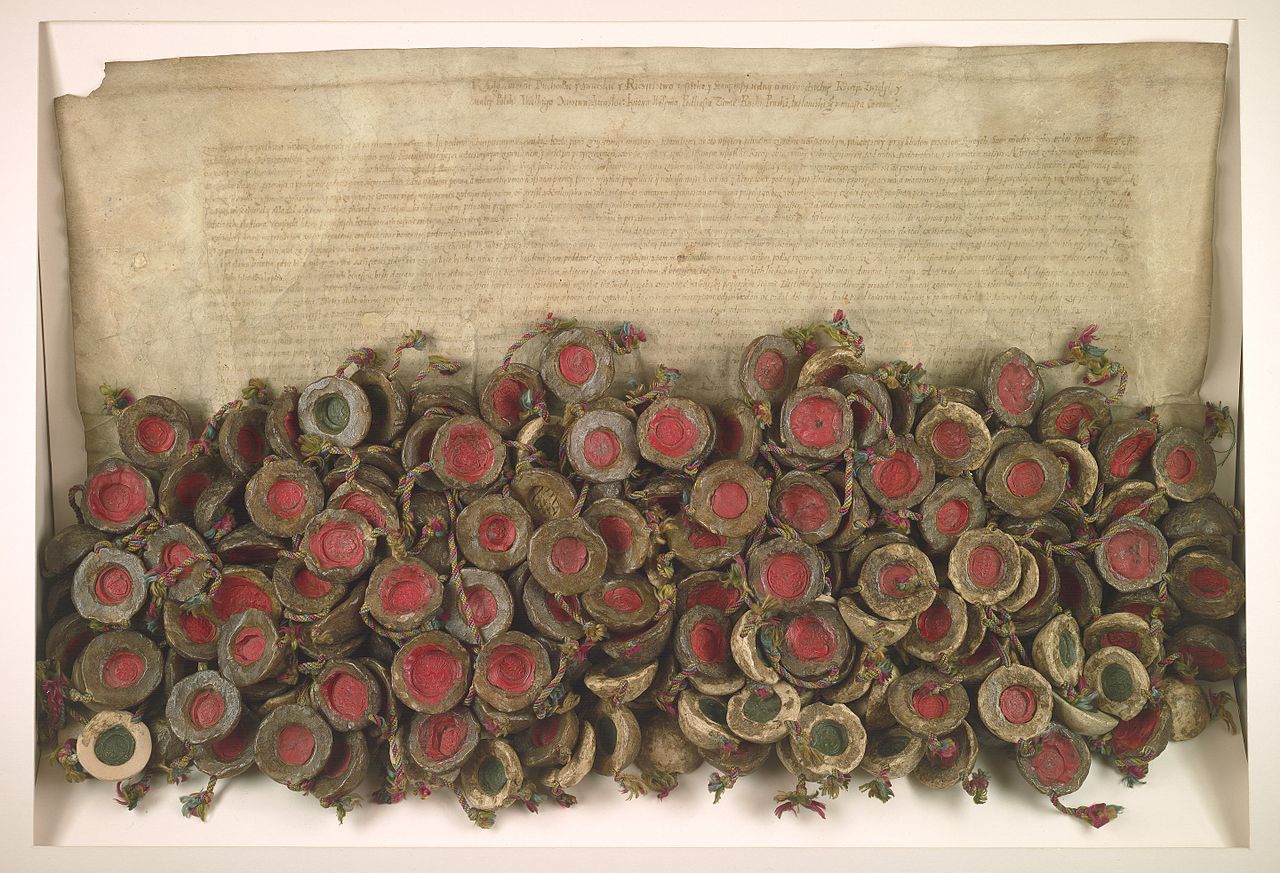
Warsaw Confederation – 1573 – Warsaw
Polish figure of the „Religious tolerance and intolerance” topic
By the beginning of 1573, Poland-Lithuania was in facing a dangerous political crisis. The last year witnessed demise of King Sigismund Augustus, the last of House Jagiellon, whose religious indifference and temperance had allowed not only peaceful coexistence between Catholics and other Christian denominations, but also free exchange of ideas. During the sessions of national Parliament and local self-government gatherings, noble followers of papacy, Luther or Calvin could collectively shape laws and politics. Putting their religious beliefs aside, they all considered themselves citizens of the shared Commonwealth.
The end of the dynasty brought in question of royal succession, but also: how to secure the peaceful, tolerant status of internal affairs, ensured by the late monarch? The solution to those concerns turned out to be the act of Warsaw Confederation, which from now on legally maintained what the King Sigismund had used to do via his sheer personal authority. The document, signed by representatives of four major denominations in Poland-Lithuania (Catholic, Lutheran, Reformed and Unity of Brethren), ensured the leading role of the Roman Church while also securing freedom of belief for other groups.
Due to inefficiency of Polish-Lithuanian administration, the act was never truly enforced by the state, yet for many decades it remained commonly respected. Although originally the liberties of the Confederation were limited to noble stratum only, even the burghers and peasants could also consider their own beliefs protected.
It can be said that the great crisis of the next century brought brutal end to Polish religious tolerance and transformed the society into self-centred bulwark of militant Catholicism. The act of the Confederation, however, was never legally lifted and as such, remained the legacy of the Commonwealth.
References:
Kriegseinen W., Between State and Church. Confessional relations from Reformation to Enlightenment: Poland – Lithuania – Germany – Netherlands, Frankfurt am Main 2016.
Maciszewski J., Szlachta polska i jej państwo, Warszawa 1986.
Tazbir J., Państwo bez stosów. Szkice z dziejów tolerancji w Polsce XVI i XVII w., Warszawa 1967.
Tazbir J., Szlachta i teologowie. Studia z dziejów polskiej kontrreformacji, Warszawa 1987.Weintraub W., Tolerance and Intolerance in Old Poland, „Canadian Slavonic Papers” vol. 13 no. 1 (Spring 1971), pp. 21-44.
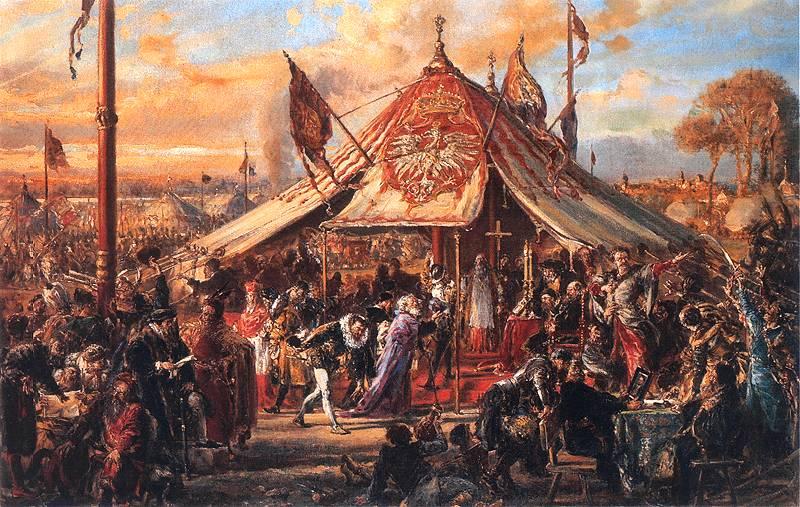
Facts


